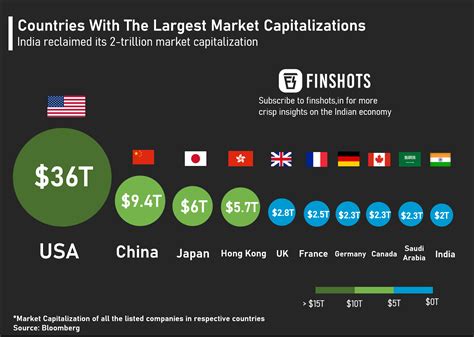Introduction

Market capitalization, commonly known as market cap, stands as a fundamental metric in the financial world, providing a snapshot of a company’s size and value. By understanding what market cap represents, investors can gain valuable insights into the financial health and potential of various companies and assets. This article delves into the intricacies of market cap, exploring its significance, calculation methods, and real-world applications.
Definition and Significance
Market cap measures the total value of a company’s outstanding shares. It is calculated by multiplying the current share price by the number of shares issued. For instance, if a company has 100 million shares outstanding and each share is trading at $20, the market cap would be $2 billion.
Market cap plays a crucial role in assessing a company’s size and dominance in its industry. Companies with large market caps are often perceived as more mature, stable, and financially sound. They tend to have a higher level of investor confidence and are often included in major market indices such as the S&P 500 and FTSE 100.
Calculation Methods
The basic formula for calculating market cap is:
Market Cap = Current Share Price * Number of Outstanding Shares
For publicly traded companies, obtaining the current share price is straightforward, as it is readily available on financial websites and stock exchanges. The number of outstanding shares, however, may require some research. This information can typically be found in the company’s financial statements or on its investor relations website.
Factors Influencing Market Cap
Several factors can impact market cap, including:
- Earnings and Revenue: Companies with strong earnings and revenue growth tend to have higher market caps due to increased investor confidence.
- Industry and Economic Conditions: Market caps can be affected by broader industry trends and economic conditions. Companies operating in high-growth industries with favorable economic conditions typically have larger market caps.
- Investor Sentiment: Market cap is influenced by investor sentiment and expectations. Positive news and bullish sentiment can lead to increased demand for shares and a rise in market cap, while negative sentiment can have the opposite effect.
Real-World Applications
Understanding market cap has numerous applications in the financial world:
- Company Comparison: Market cap allows for direct comparisons between companies within the same industry and across different sectors. It helps investors identify companies with similar market sizes and growth potential.
- Investment Decision-Making: Market cap can be used as a screening tool for investors seeking large-cap, mid-cap, or small-cap companies. It provides an initial indication of a company’s size and potential return on investment.
- Market Analysis: Market cap can provide insights into the overall health of the financial market. For example, a rising market cap across a majority of companies can indicate a positive economic outlook, while a declining market cap may suggest market uncertainty or economic slowdown.
Market Cap and Future Growth
Market cap serves as a baseline for understanding a company’s current size and value, but it is also a valuable indicator of future growth potential. Companies with high market caps typically have a greater capacity to invest in research and development, expand into new markets, and withstand economic downturns.
According to a report by McKinsey & Company, the global equity market is projected to reach $56 trillion by 2025. This growth is expected to be driven by emerging markets and the adoption of digital technologies. Market cap will continue to play a critical role in assessing the relative value and growth potential of companies in this evolving market landscape.
Tips and Tricks
- Consider Market Cap When Investing: When making investment decisions, it is crucial to consider a company’s market cap in relation to its industry, financial performance, and growth prospects.
- Monitor Changes in Market Cap: Consistent tracking of market cap helps investors identify potential opportunities and risks. Sudden changes in market cap can indicate important developments within a company or the broader market.
- Use Market Cap for Portfolio Diversification: Investing in a range of market caps helps spread risk and potentially enhance portfolio stability.
Conclusion
Market capitalization is a powerful tool for understanding the financial world. By grasping the concept and various applications of market cap, investors can make informed decisions, identify growth opportunities, and navigate the complexities of the financial markets. As the global economy continues to evolve, market cap will remain a critical metric for assessing company value and predicting future trends.



